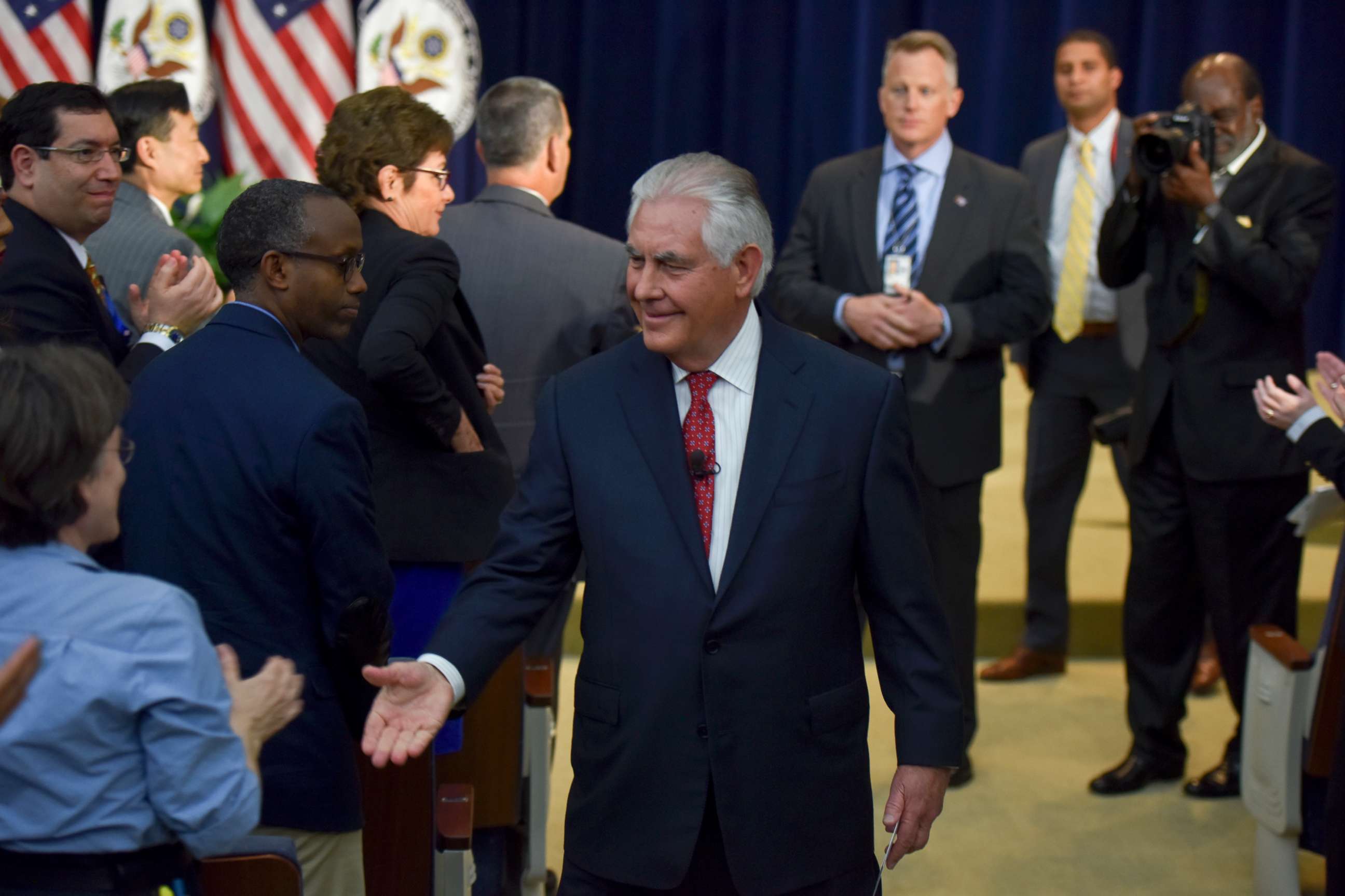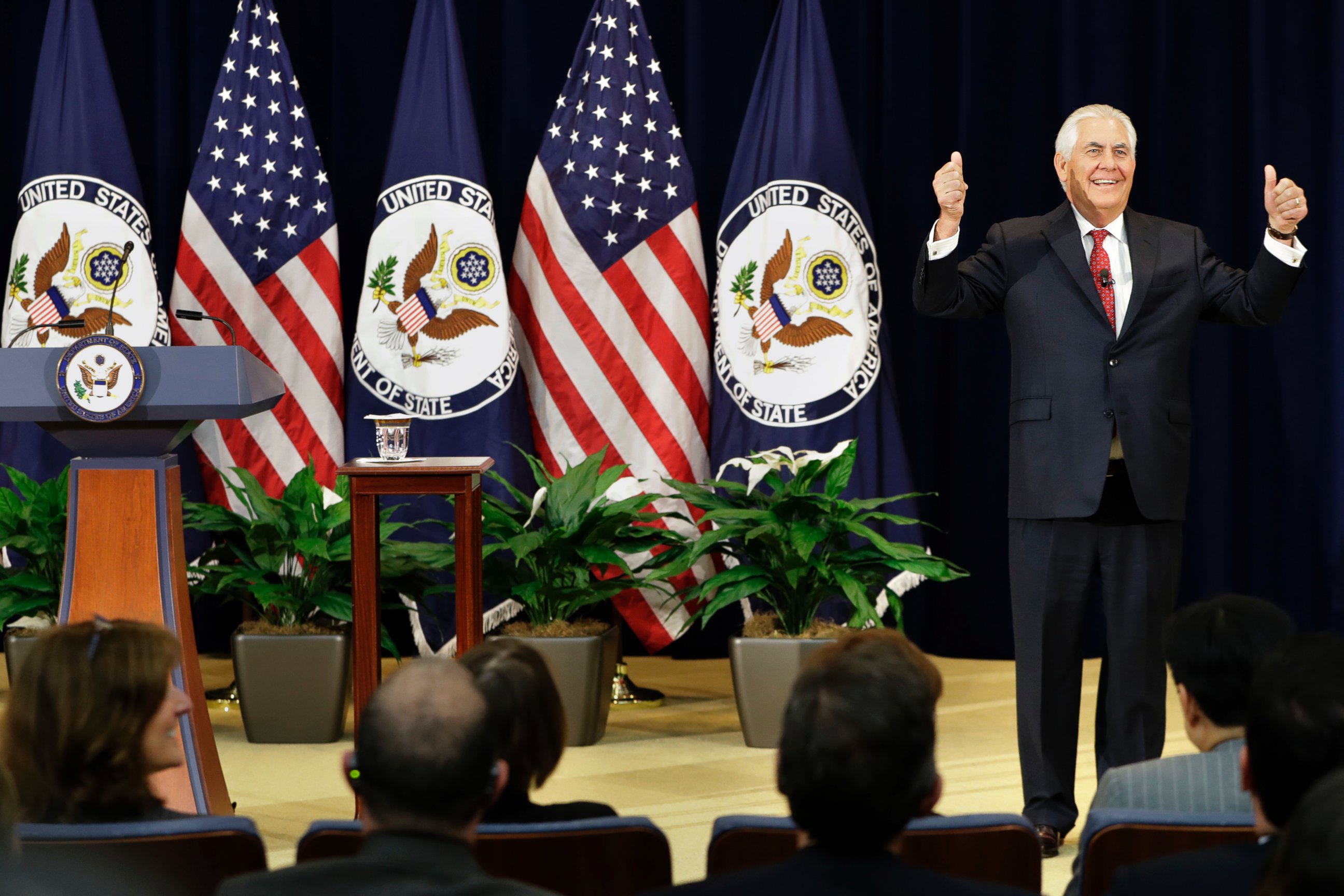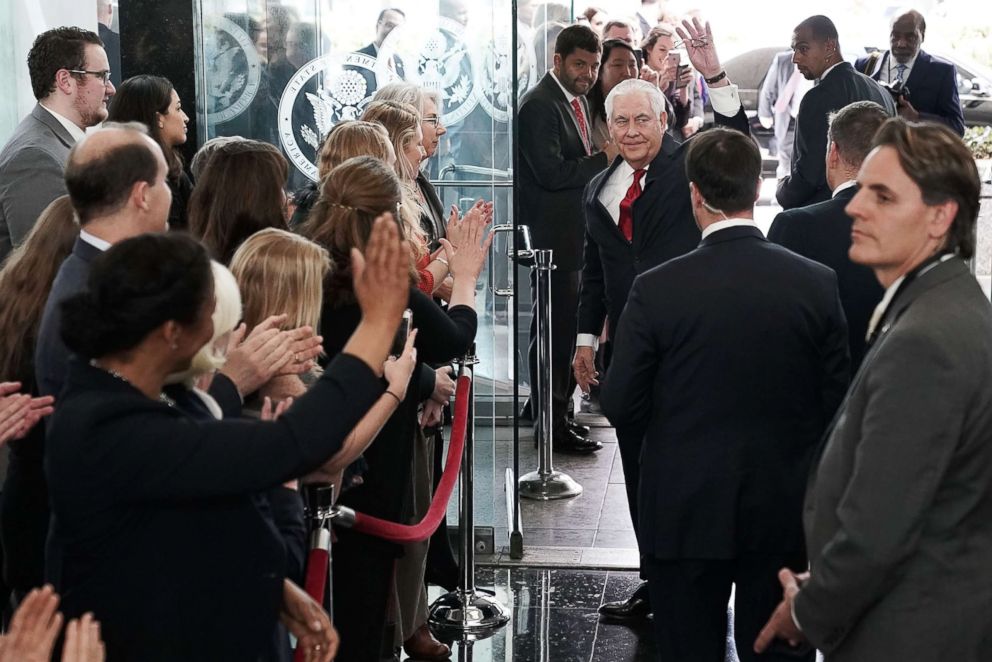Tillerson spent $12 million on consultants for State Department redesign
Former Secretary of State Rex Tillerson has been heavily criticized within his department and by outside experts for his support for President Donald Trump's deep budget cuts to diplomacy. But newly reported numbers show that while he pushed to downsize, he was spending millions of dollars asking outside firms how to do it.
Over course of less than a year, the State Department spent a total of $12 million on 45 consultants to develop a plan on how to reform the agency and reduce its size, a spokesperson for the department confirmed to ABC News. At the same time, the Trump administration proposed two budgets that both slashed funding for State and U.S. Agency for International Development by about one-third.
The expenses were part of Tillerson's "redesign" effort, a campaign much-maligned among rank-and-file members of the agency, in particular because it lead to buyouts, a hiring freeze that ended only after Tillerson was fired, and a freeze on employees' spouses working at embassies and consulates overseas.
Tillerson once called it "the most important thing I want to do during the time I have," but after he was fired, much of the project's future remains in doubt -- and with the news that amid proposed budget cuts he spent $12 million on consultants, employees left in its wake are furious.

"It's crazy. Twelve million dollars to tell us what we already knew," one State Department official told ABC News, adding that the agency already had plans that matched many of the consultants' proposals.
The State Department defended the costs -- first reported by Politico -- telling ABC News in a statement: "The value of the Impact Initiative in 2018 has been to address long-needed efforts to improve the Department’s IT infrastructure, enhance the use of data analytics to support decision making, and strengthen leadership at all levels in the organization."
The "Impact Initiative" is the agency's name for the implementation phase of the redesign.
The consultants began last spring with an online survey for employees in Washington and at posts around the world, administered by the firm Insigniam, a subcontractor for Deloitte. Around 35,000 people participated. It was followed up by 300 in-person interviews, and then employee-led teams that sifted through proposals and developed plans.
Tillerson repeatedly insisted the whole process was "employee led," although the consulting firms also played a role in developing plans and facilitating implementation.
While many State Department officials agreed the organization could use reform and streamlining processes, it was this how Tillerson treated employees -- and his support for those proposed budget cuts -- that alienated him. He created a tight inner circle, centered around his Policy Planning staff, which others in Washington felt didn't listen enough to the agency's expertise.
Ironically, as a company man who spent 41 years at ExxonMobil and rose to become the oil giant's chief executive, Tillerson was at his most passionate when discussing organizational design and human resources.

"I hope we get peace in North Korea, I hope we can settle the conflicts in Syria, I hope we can settle the conflict in Libya, I hope we can develop a better relationship with Russia, but those won't be the most important things that I'll do," the nation's top diplomat told staff at the U.S. embassy in London last September. "The most important thing I can do is to enable this organization to be more effective, more efficient, and for all of you to take greater satisfaction in what you do day in and day out."
"If I accomplish that," he added, "that will go on forever and you will create the State Department of the future."
But that implementation has mostly been halted as the agency waits for Trump's next Secretary of State nominee, Mike Pompeo, to be confirmed.
"That information will be bundled together, and we will provide that to Director Pompeo," State Department spokesperson Heather Nauert said in March. "He can take a look at it and choose what he wants to do with it."
Spending on outside contractors has already gone down in recent weeks, in part as well because full-time employees within the department are taking the lead on projects, the State Department spokesperson said. But some work "that will help our employees do their work more easily and effectively" continues, they added, "like moving to the Cloud and enabling better collaboration externally and on mobile devices."
In December, Tillerson announced the first new features of the redesign, six minor changes to IT systems and personnel policy, from the Cloud to streamlining the security clearance process and allowing employees on medical or maternity leave to telework, instead of burning leave time.

While he forecasted bigger changes coming down the line, critics pounced on the short-term results as a small pot to show for his efforts.
He also ended the hiring freeze for employees' spouses -- an announcement that garnered cheers during a town hall before the holidays. When Foreign Service Officers deploy overseas for their two or three-year assignments, it's often difficult for spouses to find work in the short time span -- and embassies are always in need of reliable Americans to fill jobs crucial to functioning, but outside a diplomat's traditional role.
Tillerson touted the end as a win, even though he implemented it in the first place and it's unclear what insight was gained by keeping it in place so long. It had been the cause of much frustration for missions and diplomats, although the State Department countered that Tillerson had signed more than 2,400 exemptions and only denied a dozen or two.
"I don't know, maybe we dodged a bullet with him gone," another official said. "If he'd stayed, maybe it would've only gotten worse."




